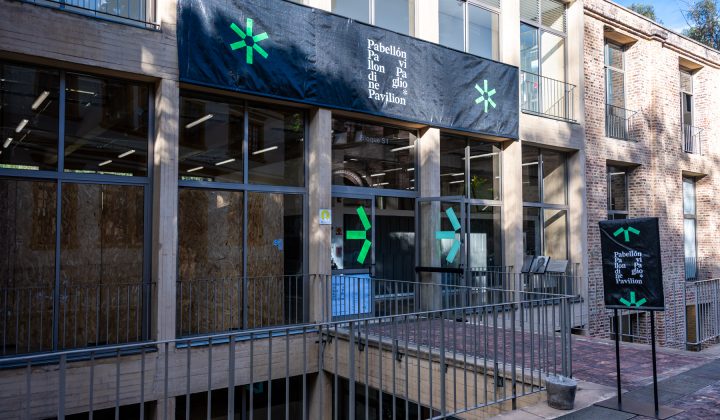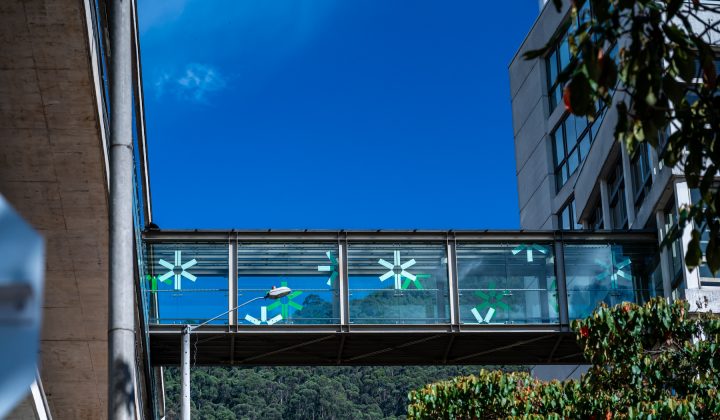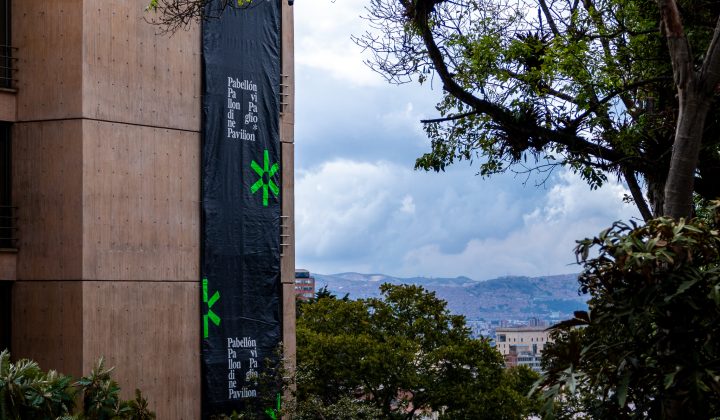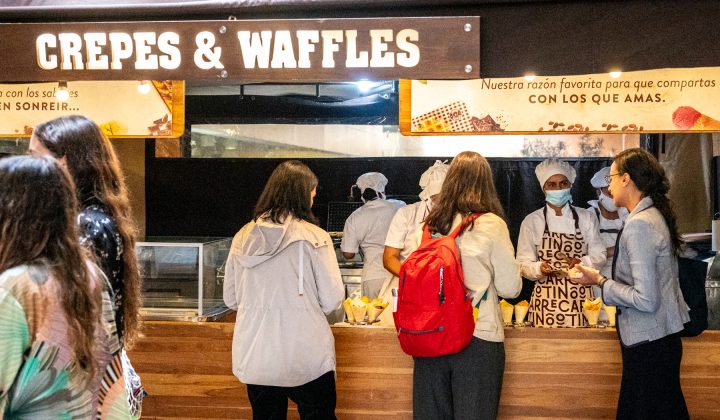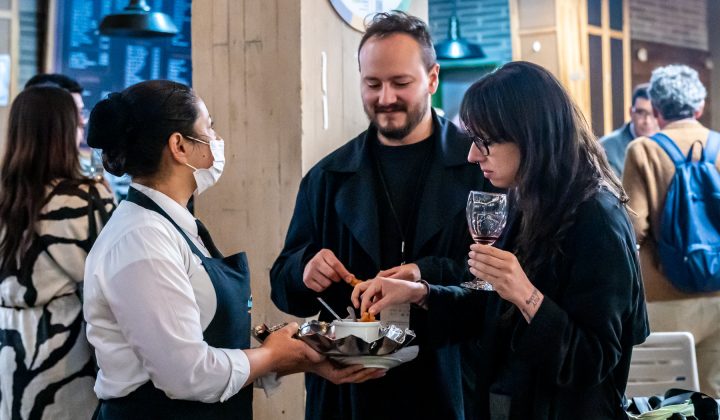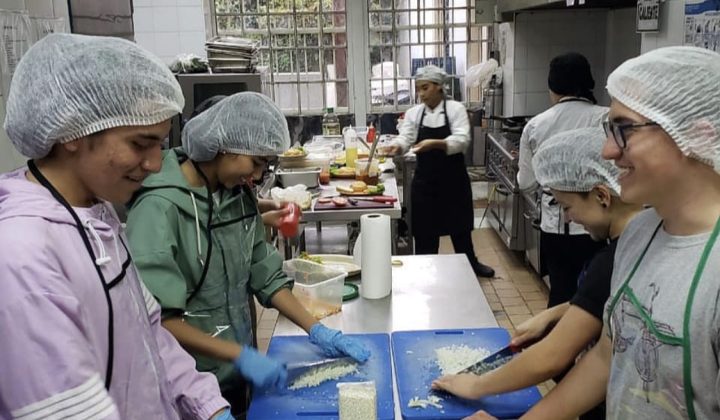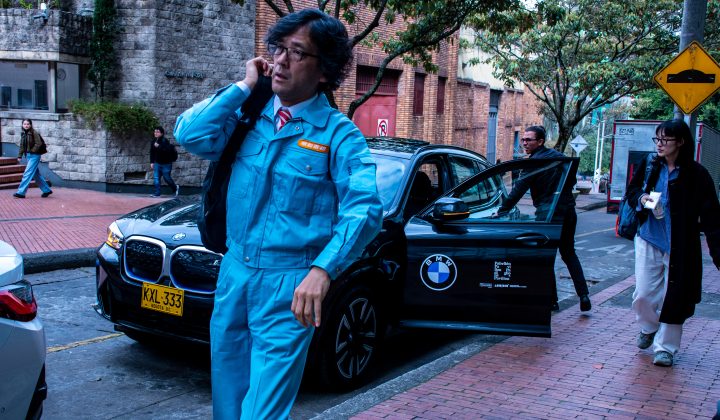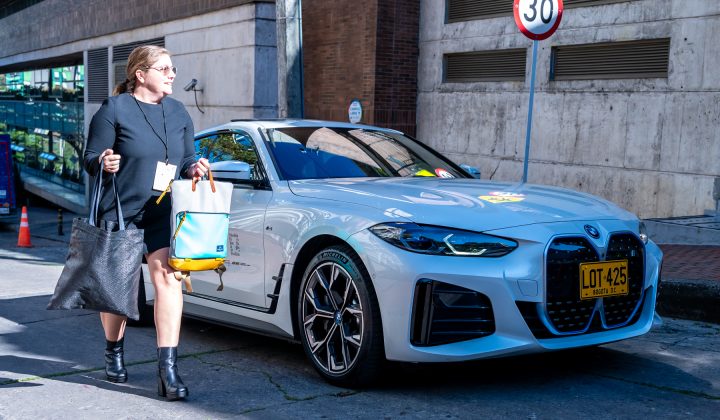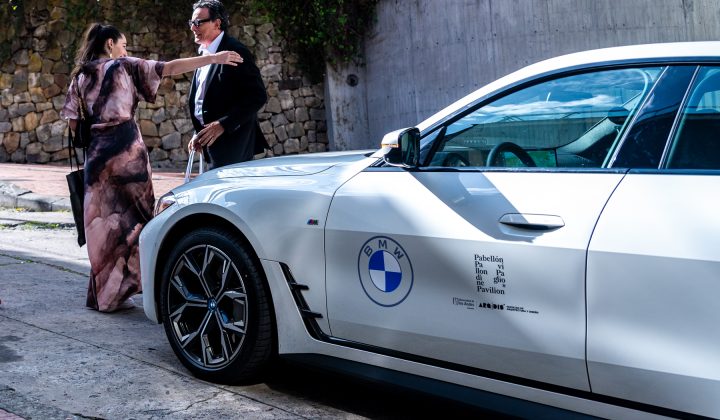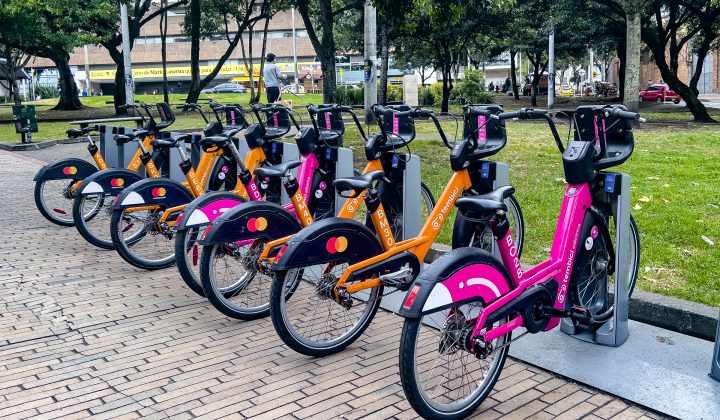Sustainability
In Pavilion, we sought to generate the least possible environmental impact and contribute to the social sustainability of our surroundings. This is why we assume sustainability as a design challenge and also invite all attendees to contribute to this goal through their participation.
Venue and Facilities
Universidad de los Andes is dedicated to becoming an increasingly sustainable campus, continuously striving to reduce negative impacts and enhance positive ones.
In recent years, these efforts have resulted in:
Energy Efficiency and Carbon Emission Reduction
Since 2015, Uniandes set the goal of reducing GEI carbon emissions 22% by 2030. During the last 5 years the University has achieved this goal by ensuring 100% of the electricity used on campus comes from renewable resources, and installing more than 350 solar panels across its buildings. Thanks to this effort, Uniandes has reduced its emissions by 500tons of CO2 per year, compared to its 2015 emissions.
Electricity on-campus comes from renewable energy sources
Reduction of emissions compared to 2015.
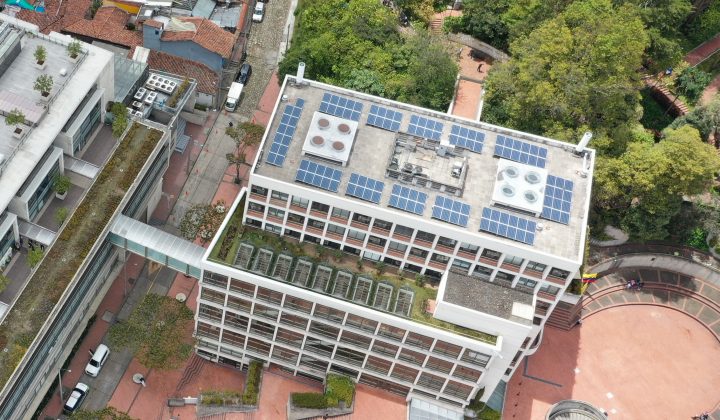
Solar panels on our W Building.
Green Areas and Living Roofs
- More than 50% of our campus consists of green areas with 750 plant species.
- Since 2019, the Agrolab project has built and maintained a sustainable urban agriculture space inside the University.
- In 2022, the “Huerta Franca” was built: an area for growing different plants and vegetables maintained by social sciences students.
Total green areas
Living roofs
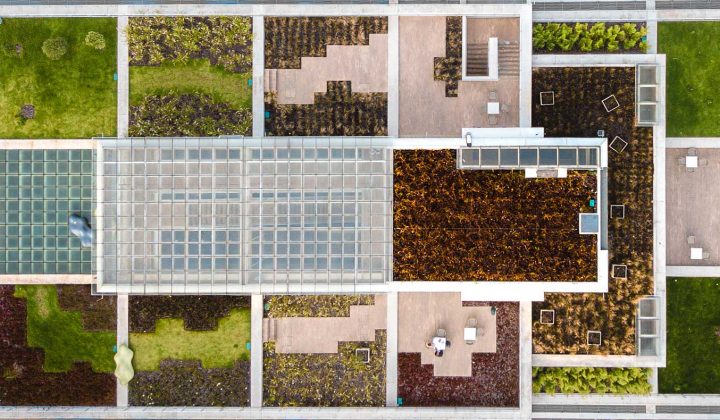
Rooftop of our Centro Cívico Building, awarded LEED Gold certification and recognized for responsible water usage and energy efficiency.
Efficient Water Usage
The University has taken great care to minimize water waste. In the last years, these efforts have included:
- Treating non-domestic wastewater into effluent that can be reused or reintroduced into the environment following current regulations.
- Implementing a sustainable irrigation system for the campus’s gardens and green areas.
- The installation of hydroefficient utilities and accesories.
- Reusing rainwater for uses that do not require potable water.
Responsible Waste Management
The University has a large amount of recycling bins which are taken to a waste facility in charge of carefully categorizing each waste material according to how they should be recycled. In addition, Eco-bots are available around campus. These are machines that award store discounts for every recycled material.
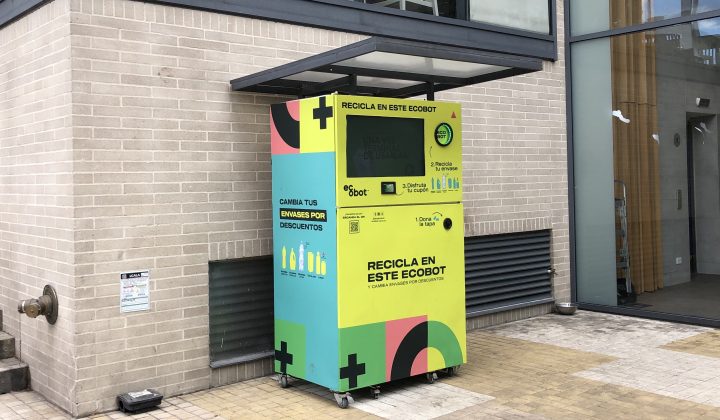
Campus Ecobot machines that offer discounts in exchange for recycling.
Participants' Carbon Emission Offset
Through a partnership between Treelife, Universidad de Los Andes’s Campus Management, and the Faculty of Architecture and Design, Pavilion attendees had the opportunity to offset their carbon emissions during the event by purchasing 1 or more trees. These trees will be planted at Hacienda El Noviciado in Cota, Cundinamarca.
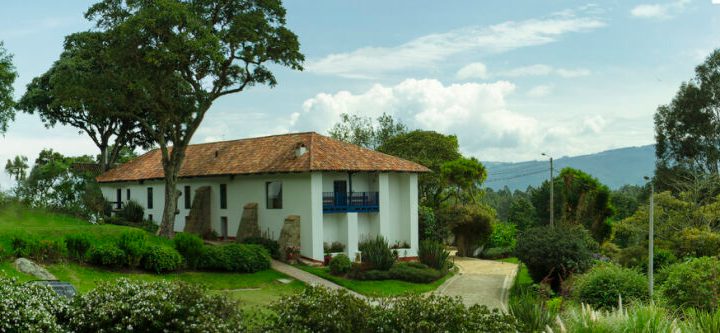
Hacienda El Noviciado, Cundinamarca.
Circular Design
Pavilion is committed with reusing and recycling material as much as possible. To do so, we carefully chose how to produce our conference signage and merchandise to minimize waste and maximize reused materials as well as reusability of finished products.
Signage and Communication
The scale of the event required a large-scale signage intervention. We addressed this challenge by using multiple meters of previously discarded shade cloth from constructions on our Campus as the raw material. With the resources from our workshops, we treated this material to transform it into signage. As a complement, Gaffer tape was also used. These actions allowed saving 112 meters of single-use plastic banner and 16.76 square meters of adhesive vinyl.
Reused Shade Cloth
Single-use plastic saved
Conference Kit
Our attendees received merchandise that fully embraced sustainability and was designed to have a lifecycle beyond the days of the event. This kit included a bag made from reused shade cloth and a thermos that could be filled at various drinking water points on our campus, avoiding 2,700 single-use plastic water bottles.
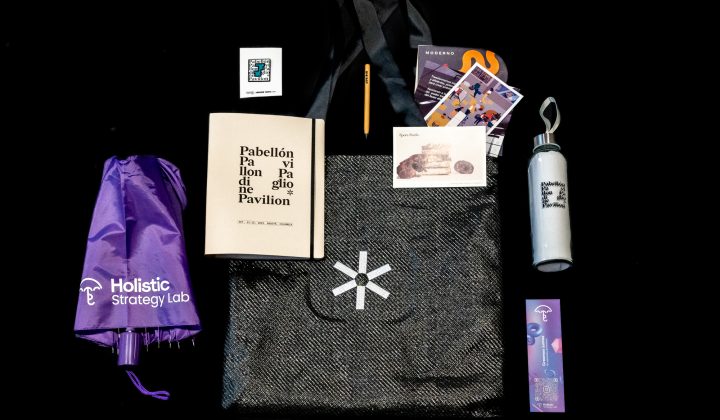
Sustainable conference kit.
Sustainable Mobility
Pavilion’s agenda was designed to minimize individual travel. Almost all activities took place within the Campus, and those that were in the city had access to collective transportation. We recommended staying at our partner hotels, as they were located close to the event venue.
Additionally, we supported and encouraged all sustainable mobility alternatives:
Support for Alternative Transportation
Universidad de los Andes has all the facilities for those who decided to use bicycles. The Mobility Secretariat of Bogotá awarded our university the Biennial Cycle Parking Award, and we have also received the Gold Quality Seal for meeting the highest standards of quality and infrastructure in bicycle parking.
Bicycle parking spaces
Electric vehicle charging stations
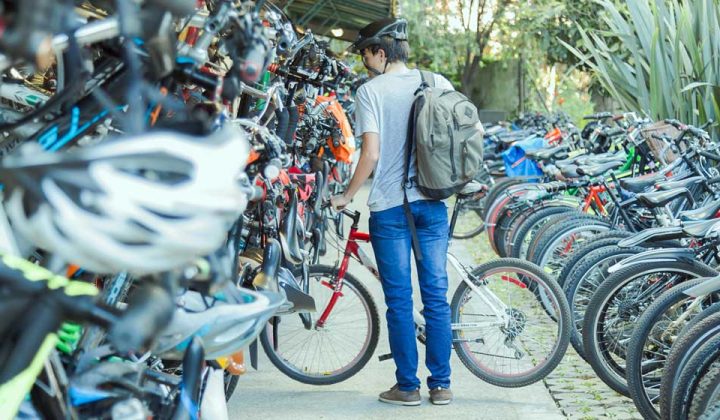
One of Uniandes's bicycle parking lots.
Recommended Transportation Methods
Bogotá’s shared bike system Tembici allowed participants to travel throughout the city. We also recommended taking advantage of Uber Green to use hybrid or fully electric vehicles when travelling longer distances. Our Keynote speakers were transported in electric cars provided by our sponsor Autogermana/BMW.
Share your thoughts
By sending a message you agree to our terms and policies. This site is protected by reCAPTCHA and the Google Privacy Policy and Terms of Service apply.
